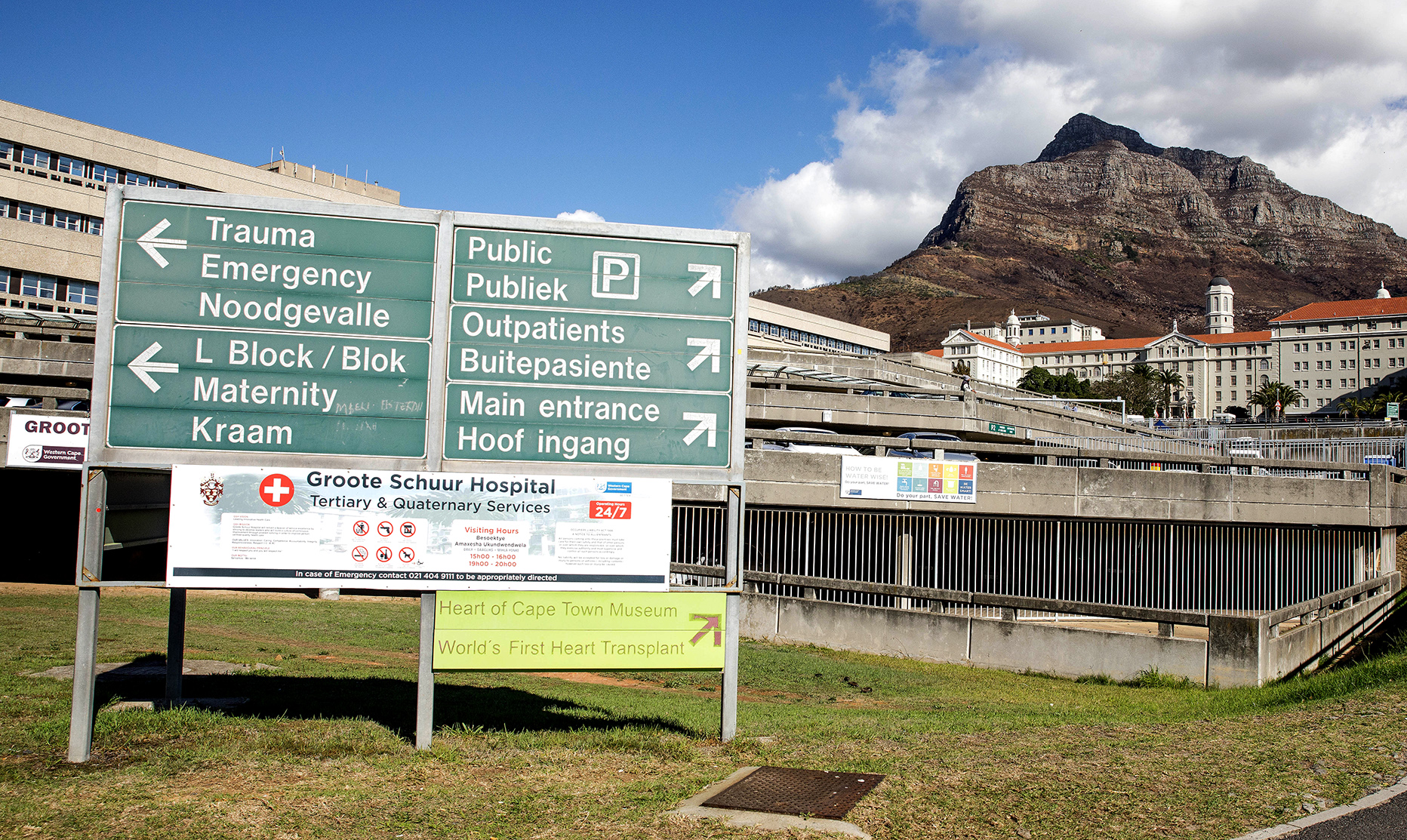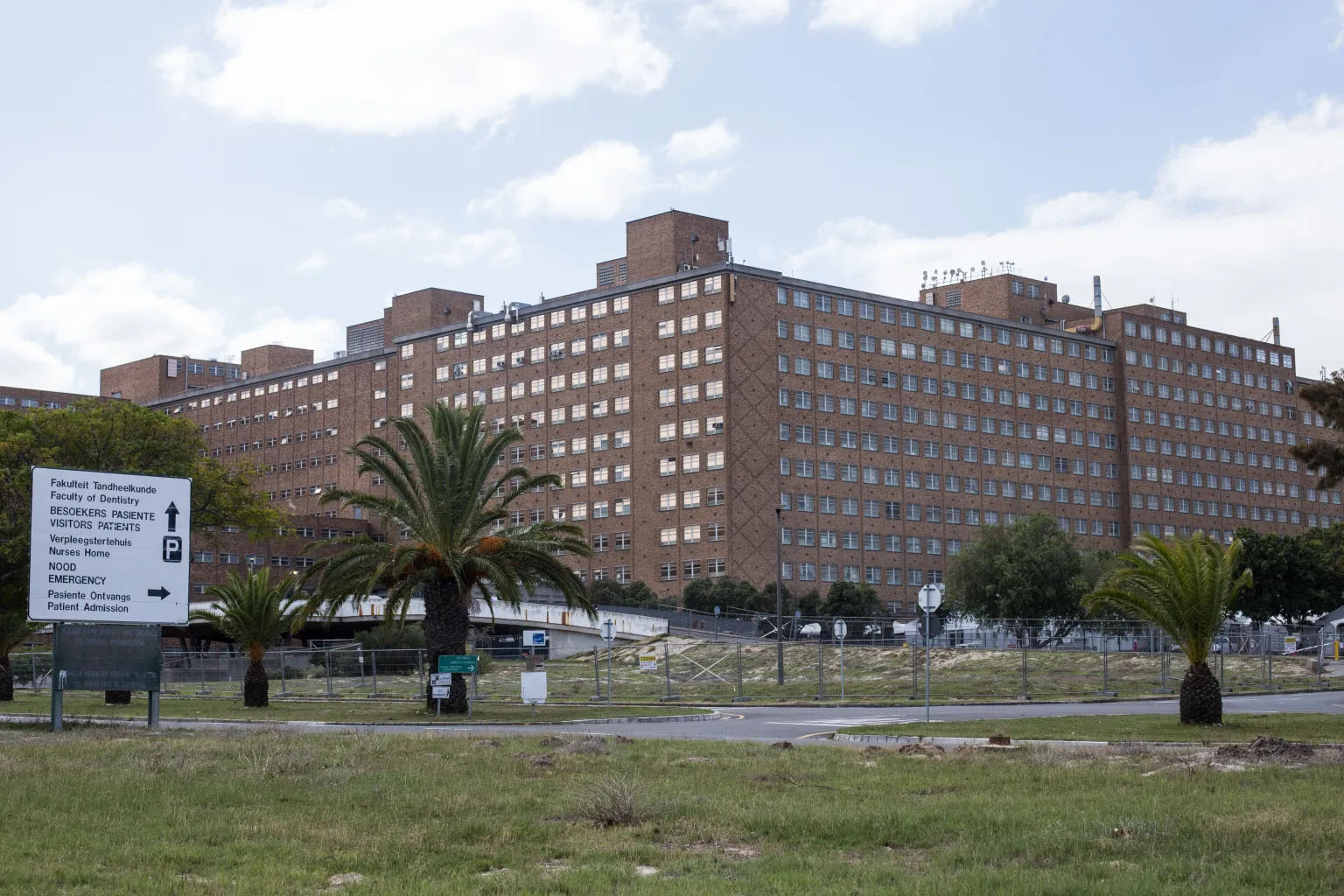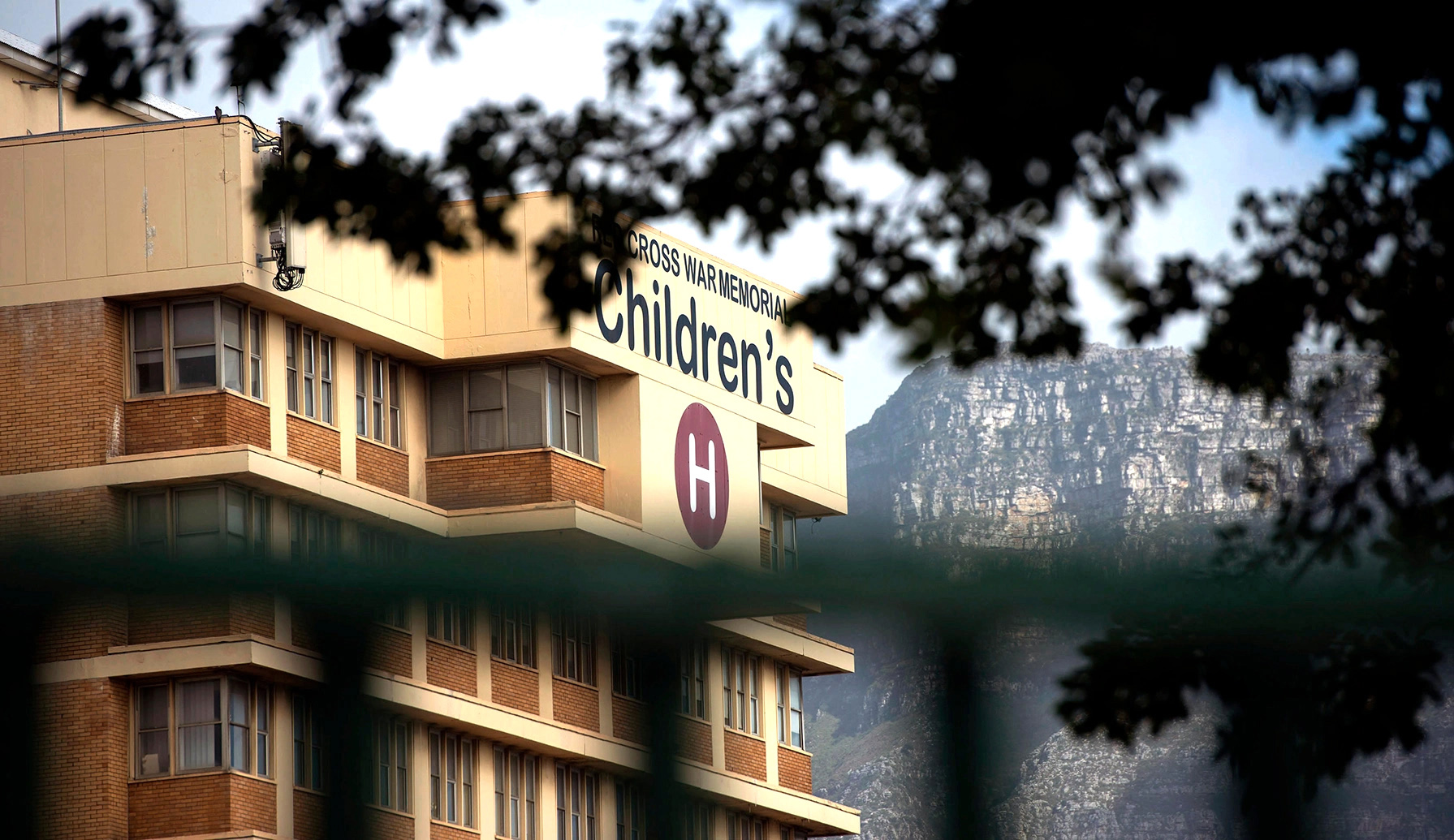A national budget shortfall of at least R570-million has forced the Western Cape’s three tertiary hospitals to make critical and potentially catastrophic service delivery cuts to avoid a medical Day Zero by 15 January.
To make up for the shortfall, Groote Schuur Hospital, Tygerberg Hospital and the Red Cross War Memorial Children’s Hospital decided at high-level management meetings to de-escalate their services from mid-December to mid-January.
In addition, several other savings need to be made within a short time. This includes saving 50% on consumables, not filling posts and reducing surgical procedures.
The public sector wage increase, as agreed to by the national government, has not been funded, which has a substantial impact on the money hospitals receive from the government. The total wage shortfall for all the health departments across SA’s nine provinces is R8.7-billion.
The shortfall for Tygerberg Hospital is R275-million, for Groote Schuur Hospital R264-million and for the Red Cross War Memorial Children’s Hospital R31-million.
The three CEOs of these hospitals sent a memorandum to departmental heads stating, “Unfortunately, if we continue to function as we have over the past six months, our cash flow will run out by mid-January (our Day Zero).
“The implication of this could mean a non-payment of salaries, a non-payment of all accounts, a non-delivery of consumables, the inability to order essential pharmaceuticals and other items, and we will have to carry these costs over into the new financial year, which is predicted to offer another reduction in our budgets.”
The hospitals’ budgets come from three sources:
- The National Tertiary Services Grant, allocated by the National Treasury via the National Department of Health.
- The Human Resources and Training Grant, allocated by the National Treasury via the National Department of Health.
- The Provincial Equitable Share, allocated by the Western Cape’s Department of Health and Wellness.
Tygerberg’s total budget for 2023/24 is R3.386-billion, Groote Schuur has a budget of R3.009-billion, and the Red Cross hospital’s budget is R937-million. They spend 63%-66% of their budgets to pay staff and the remainder is used for operational costs.
At the beginning of the financial year, there were significant cuts to the National Tertiary Services Grant, the Human Resources and Training Grant and the Provincial Equitable Share, adding to the crisis.
The financial situation is unlikely to improve, so further cuts are expected in the coming years.
Departments in the academic hospitals have been asked to reduce consumables by 50%, cut overtime, stop using agencies for nursing shortages and delay filling posts for three months. Staff have been encouraged to take leave.
 The shortfall for Groote Schuur is R264 million. (Photo: Gallo Images / ER Lombard)
The shortfall for Groote Schuur is R264 million. (Photo: Gallo Images / ER Lombard)
‘Unprecedented cuts’
De-escalating of services happens each year, but one surgeon in a senior post at one of the hospitals said, “The de-escalating is normally two weeks, and this year it is four weeks. It is the longest period ever. Most elective surgeries will not happen, and only emergencies will be done.”
The surgeon and other sources quoted requested anonymity so they could speak freely.
“It is irresponsible to have such a massive shortfall because it is starting to affect the core interests of the hospital. The education of doctors is also affected because posts may not be filled.
“There will be a knock-on effect by closing the outpatient clinics for longer during the de-escalation period as well as not performing elective surgery. Patients do present later with more complex disease.
A specialist told Daily Maverick, “We don’t know what will happen after the 15th of January. There is a very real possibility that there will be even more cuts. This is unprecedented in all the years I have been at the hospital. We are in for a difficult time.
“One would like to see people speak up about this on a political level.”
At Groote Schuur, three anaesthetists have resigned and because of the budget crisis they will not be replaced for at least three months.
A circular from a hospital CEO reads: “Previous years were also bad, but somehow, we survived them. This year, the bad news is very real… There will be significant changes to the size, shape and service benefit and possibly even staff.”
The three hospitals not only treat the most complex cases in the province and numerous cases from elsewhere, but they are also academic teaching hospitals.
The specialist told Daily Maverick: “We treat very complicated cases from all over the country. Even before this [budget issue] we struggled with reduced theatre time. Due to surgery operating time cuts, specialists will not be able to keep up their own skills, let alone do training. All registrar training only happens at public hospitals.
“We are now seeing more and more advanced cases of pathology due to the backlog from Covid. Further reduction in our service capacity will severely compromise patients’ access to life- or disability-saving services.
“Everybody expects chaos by the 15th of January, when we expect more cuts. Some people have already resigned due to the difficult conditions. The decisions we will be forced to make leave doctors with massive medical-legal issues.”
 The shortfall for Tygerberg Hospital is R275-million. (Photo: Ashraf Hendricks)
The shortfall for Tygerberg Hospital is R275-million. (Photo: Ashraf Hendricks)
‘An impossible situation’
According to the head of one of the departments at one of the three hospitals, the biggest concern is the freezing of posts: “If a specialist resigns I can’t fill the post, yet the remaining people still have to deliver the same quality of care … The problem is one cannot freeze certain frontline posts, it is a non-negotiable, if you do, you have to stop the service … This is an impossible situation to manage.
“The issue is not only what will happen in the next three months, but what will happen next year and the year after. This is the end of the current three-year budget cycle… What is next? We don’t know, and inflation is very high.
“Even before this, some departments did not have enough human resources. On top of that, many doctors are not even paid for by the government, they are funded by fellowships,” said the head of department.
Another expert, with years of experience in paediatrics, said: “The impact will be huge. We have a growing childhood population. We are already under-resourced and this will translate to less care and access. And, there is just silence about this from the government.”
Tygerberg Hospital and Groote Schuur Hospital see nearly 500,000 patients in their outpatient departments and nearly 65,000 in their emergency centres annually. The Red Cross War Memorial Children’s Hospital sees nearly 80,000 patients in its outpatient department and some 36,000 patients in its emergency centres annually.
As of 31 October, Tygerberg had 4,639 employees, Groote Schuur 3,694 employees and the Red Cross hospital 1,152 employees. The figures include medical, nursing, administration and support employees.
What the government says
The provincial and national health departments were asked how they planned to help the hospitals.
Foster Mohale, the spokesperson for the National Department of Health, said, “The calculated wage bill shortfall was estimated to be about R8.7-billion for the health sector. The National Treasury has estimated the shortfall to be equivalent to 18,000 posts within the health sector. The department is awaiting the budget adjustment speech by the Minister of the National Treasury to identify if the wage increase will be funded.
“The department and National Treasury had meetings which involved the nine provincial health departments, nine provincial treasuries and the National Treasury. The shortfall of R8.7-billion was discussed, with no funding proposals identified.
“There is no doubt that budget cuts will impact healthcare; however, the department is working with the provinces to ensure that essential services, including recruitment of health specialists, procurement of medical supplies and equipment are prioritised.”
In the Medium-Term Budget Policy Statement on Wednesday, Finance Minister Enoch Godongwana said an additional R24-billion had been allocated this year and R74-billion over the medium term to fund wage increases in the health, education and police sectors. How these funds will be distributed remains unclear.
What the Western Cape says
Western Cape Department of Health and Wellness spokesperson Byron La Hoe said: “Predictions are hard to make on how the Department of Health and Wellness will be affected during the current financial year (2023/24) and upcoming Medium-Term Expenditure Framework period (2024/25 to 2026/27). There is no doubt that budget cuts will impact healthcare nationally.
“The department is engaged in the upcoming Medium-Term Budget Policy Committee and Provincial Government Medium-Term Expenditure Committee discussions, and further updates will be communicated in due course.
“Until such time, regular engagements are taking place with senior officials and service managers in the department on how we can prepare for these cuts, which will be across the health system.
“We acknowledge that there will need to be some service prioritisation and rationing across the public health system. The department is exploring a more holistic and pragmatic approach to achieving a balanced budget and includes working with variable budget scenarios and cash flow management planning as part of sound financial monitoring and sector financial planning. This is applicable across the public health sector and not limited to these three hospitals, as they will be affected the same way as all other facilities across the country.” DM
Elsabé Brits is a freelance science and medical journalist.




 Doctors at Tygerberg Hospital’s intensive care unit have explained in the South African Medical Journal how they’re treating Covid-19 patients. (Photo: Ashraf Hendricks)
Doctors at Tygerberg Hospital’s intensive care unit have explained in the South African Medical Journal how they’re treating Covid-19 patients. (Photo: Ashraf Hendricks)